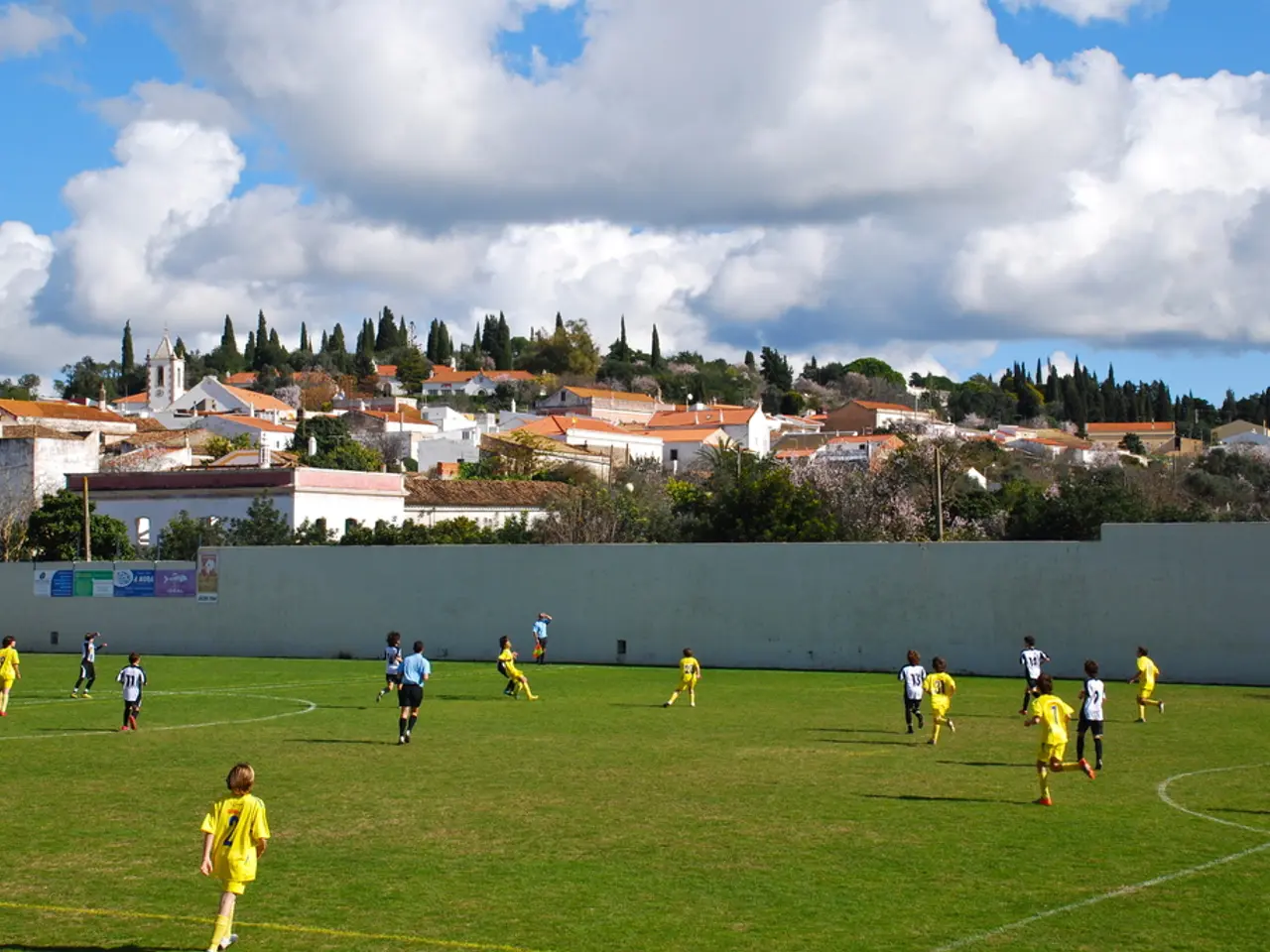Outdoor play boosts communication abilities, fostering practical life skills in reality
Outdoor play provides a dynamic and supportive environment for children to develop their communication skills in various ways.
Children learn a rich vocabulary not typically found indoors, such as "lichen," "deciduous," and "erosion," through direct observation of nature. This hands-on exploration also helps them develop texture vocabulary, like "rough bark" and "smooth pebbles." Field guides and nature identification apps serve as natural vocabulary builders, expanding their knowledge of the natural world.
Outdoor games offer structured opportunities for children to practice essential communication skills like turn-taking and negotiation. Team sports, such as kickball, require constant non-verbal assessment, while group games teach children to interpret facial expressions, posture, and gestures instantly. Obstacle courses create opportunities for children to debate different approaches and explain their reasoning, fostering problem-solving communication skills.
Outdoor play encourages imaginative language use during role play and storytelling. Children's outdoor adventures nurture their ability to tell stories that go beyond immediate experiences, enhancing complex language skills and building emotional understanding, empathy, and compassion.
Playgrounds provide opportunities for both verbal and non-verbal communication, including gestures, facial expressions, and body language. These forms of communication help all children, including those with speech or language disorders, to connect meaningfully with peers. Through parallel play—playing alongside peers without direct interaction—children observe and learn different communication styles, problem-solving approaches, and social behaviors, which builds their social awareness and readiness for verbal communication.
Outdoor challenges create lasting bonds between children, fostering deep conversations and shared memories. Shared outdoor adventures require clear task delegation and coordination, strengthening peer relationships and communication abilities. Collaborative physical obstacles also require children to give clear instructions and coordinate their movements, developing technical vocabulary for movement and positioning.
The natural environment eliminates competing electronic sounds that typically fragment children's attention, demanding rich descriptive language that sharpens communication precision. Outdoor play introduces children to specialized vocabulary they won't find indoors, such as weather descriptions like "dappled sunlight," "misty morning air," or "gentle drizzle."
Children discover their natural leadership voices when they lead outdoor activities, and outdoor environments improve children's auditory awareness and concentration skills by eliminating indoor noise pollution. Overall, outdoor play creates a holistic environment where children develop expressive and receptive language skills alongside social and emotional communication abilities.
- Incorporating outdoor activities into a lifestyle can expose children to diverse vocabulary from fashion-and-beauty, such as describing the colors of fall leaves or the textures of tree bark, enhancing their language skills.
- During travels, children can engage in petting zooms or wildlife sanctuaries, teaching them unique terminology related to pets and animals, fostering their knowledge and appreciation for various species.
- Purchasing a new car offers opportunities to learn about automobile terminology, such as "tires," "brakes," and "exhaust," making shopping an educational experience.
- Home-and-garden enthusiasts can engage their children in gardening tasks, introducing them to specialized terms like "seeds," "compost," and "pruning," promoting learning through hands-on activities.
- Participating in sports and physical activities, such as swimming or soccer, can help children develop verbal and non-verbal communication skills, like cheering for teammates, offering support, or giving instructions during gameplay, all while building strong relationships with their peers. Education-and-self-development can be found in every outdoor adventure, expanding children's understanding of the world and their place within it.





